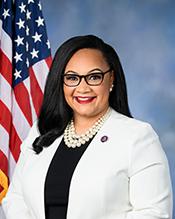0
Medicare for All Act
1/4/2025, 11:17 AM
Summary of Bill HR 3421
Under the Medicare for All Act, all US residents would be eligible for comprehensive healthcare benefits, including hospital visits, doctor's appointments, prescription drugs, and mental health services. This would be funded through a combination of taxes on individuals and businesses, as well as reallocating existing healthcare spending.
The bill aims to eliminate the need for private health insurance companies, as all healthcare services would be covered by the government. This would theoretically reduce administrative costs and streamline the healthcare system, making it more efficient and accessible to all Americans. Supporters of the Medicare for All Act argue that it would ensure that every American has access to quality healthcare, regardless of their income or employment status. They also believe that it would lower overall healthcare costs and improve health outcomes for the population. Opponents of the bill, however, raise concerns about the potential tax increases that would be necessary to fund the program, as well as the potential for government inefficiency and long wait times for medical services. Overall, the Medicare for All Act is a controversial piece of legislation that seeks to fundamentally change the way healthcare is provided in the United States. Its fate in Congress remains uncertain, but it has sparked a national debate about the future of healthcare in the country.
Congressional Summary of HR 3421
Medicare for All Act
This bill establishes a national health insurance program that is administered by the Department of Health and Human Services (HHS).
Among other requirements, the program must (1) cover all U.S. residents; (2) provide for automatic enrollment of individuals upon birth or residency in the United States; and (3) cover items and services that are medically necessary or appropriate to maintain health or to diagnose, treat, or rehabilitate a health condition, including hospital services, prescription drugs, mental health and substance abuse treatment, dental and vision services, long-term care, gender affirming care, and reproductive care, including contraception and abortions.
The bill prohibits cost-sharing (e.g., deductibles, coinsurance, and copayments) and other charges for covered services. Additionally, private health insurers and employers may only offer coverage that is supplemental to, and not duplicative of, benefits provided under the program.
Health insurance exchanges and specified federal health programs terminate upon program implementation. However, the program does not affect coverage provided through the Department of Veterans Affairs or the Indian Health Service.
The bill also establishes a series of implementing provisions relating to (1) health care provider participation; (2) HHS administration; and (3) payments and costs, including the requirement that HHS negotiate prices for prescription drugs.
Individuals who are age 18 or younger, age 55 or older, or already enrolled in Medicare may enroll in the program starting one year after enactment of this bill; other individuals may buy into the program at this time. The program must be fully implemented two years after enactment.





